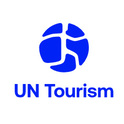Quality Management key for the competitiveness of tourism destinations
Quality management indicators and processes are key tools for the competitiveness of tourism destinations concluded the UNWTO Conference on Quality Management held last week in Bucharest, Romania.
In that regard, participants to the conference called for an integrated approach to quality management as a priority in long-term strategic planning of Destination Management Organizations (DMOs) at national and sub-national levels.
An integrated quality management approach to destination management contributes to improving the image of the destination, enhances the legislative framework and minimizes operational challenges.
"We live in an increasingly competitive sector. Quality standards provide a framework to guide stakeholders to improve their operations and services along the whole tourism value chain so as to create a complete and positive tourism experience" said UNWTO Secretary-General, Taleb Rifai.
Costin Grigore Borc, Deputy Prime Minister and Minister of Economy, Commerce and Relations with the Business Environment of Romania said "the dynamic changes in the global tourism market require qualitative transformation of nearly every tourism segment within a destination. For tourism destinations to survive, trends that relate to a continuous improvement of the tourism supply quality need to be intensely tracked."
"Tourism, multi-sectorial by nature, was and still is vulnerable to market turbulence and economic crises. However, it was able to withstand the global economic crisis more than most other sectors, to relaunch as few sectors have been able to, and to quickly recover from periods of temporary weakness" remarked Anca Pavel-Nedea, President of the National Tourism Authority of Romania at the opening of the conference.
The Conference focused on 'destination quality' as a step beyond 'product/service quality', and provided a showcase for sharing initiatives and good practices in quality management in coastal destinations, protected areas, spa/wellness destinations, urban destinations and cultural heritage destinations.
The 103rd UNWTO Executive Council Meeting held in Málaga last May approved the following definition of Quality of a Tourism Destination, as proposed by UNWTO's Committee on Tourism and Competitiveness: "Quality of a Tourism Destination is the result of a process which implies the satisfaction of all tourism product and service needs, requirements and expectations of the consumer at an acceptable price, in conformity with mutually accepted contractual conditions and the implicit underlying factors such as safety and security, hygiene, accessibility, communication, infrastructure and public amenities and services. It also involves aspects of ethics, transparency and respect towards the human, natural and cultural environment".
About UN Tourism
The World Tourism Organization (UN Tourism) is the United Nations agency responsible for the promotion of responsible, sustainable and universally accessible tourism.
As the leading international organization in the field of tourism, UN Tourism promotes tourism as a driver of economic growth, inclusive development and environmental sustainability and offers leadership and support to the sector in advancing knowledge and tourism policies worldwide.
Our Priorities
Mainstreaming tourism in the global agenda: Advocating the value of tourism as a driver of socio-economic growth and development, its inclusion as a priority in national and international policies and the need to create a level playing field for the sector to develop and prosper.
Promoting sustainable tourism development: Supporting sustainable tourism policies and practices: policies which make optimal use of environmental resources, respect the socio-cultural authenticity of host communities and provide socio-economic benefits for all.
Fostering knowledge, education and capacity building: Supporting countries to assess and address their needs in education and training, as well as providing networks for knowledge creation and exchange.
Improving tourism competitiveness: Improving UN Tourism Members' competitiveness through knowledge creation and exchange, human resources development and the promotion of excellence in areas such as policy planning, statistics and market trends, sustainable tourism development, marketing and promotion, product development and risk and crisis management.
Advancing tourism's contribution to poverty reduction and development: Maximizing the contribution of tourism to poverty reduction and achieving the SDGs by making tourism work as a tool for development and promoting the inclusion of tourism in the development agenda.
Building partnerships: Engaging with the private sector, regional and local tourism organizations, academia and research institutions, civil society and the UN system to build a more sustainable, responsible and competitive tourism sector.
Our Structure
Members: An intergovernmental organization, UN Tourism has 160 Member States, 6 Associate Members, 2 Observers and over 500 Affiliate Members.
Organs: The General Assembly is the supreme organ of the Organization. The Executive Council take all measures, in consultation with the Secretary-General, for the implementation of the decisions and recommendations of the General Assembly and reports to the Assembly.
Secretariat: UN Tourism headquarters are based in Madrid, Spain. The Secretariat is led by the Secretary-General and organized into departments covering issues such as sustainability, education, tourism trends and marketing, sustainable development, statistics and the Tourism Satellite Account (TSA), destination management, ethics and risk and crisis management. The Technical Cooperation and Silk Road Department carries out development projects in over 100 countries worldwide, while the Regional Departments for Africa, the Americas, Asia and the Pacific, Europe and the Middle East serve as the link between UN Tourism and its 160 Member States. The Affiliate Members Department represents UN Tourism's 500 plus Affiliate members.
Rut Gómez Sobrino
Principal Media Officer
(+34) 91 567 81 60
UN Tourism
